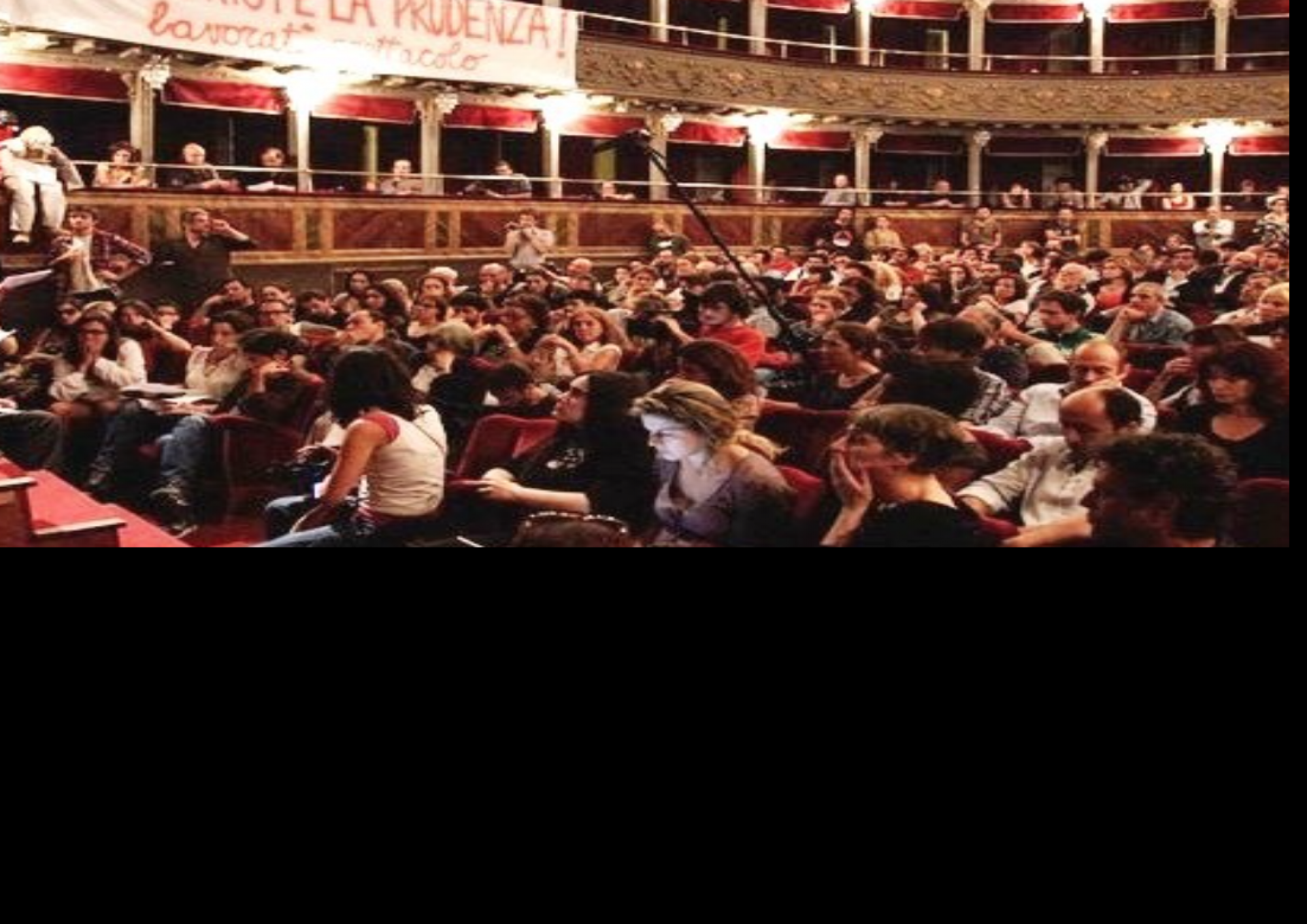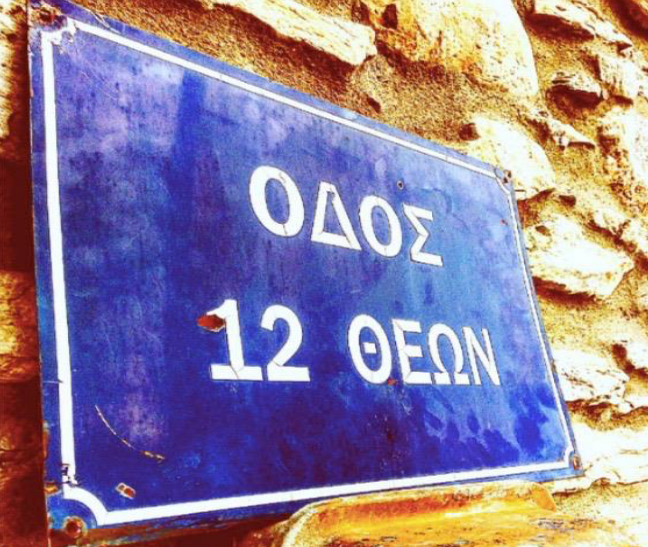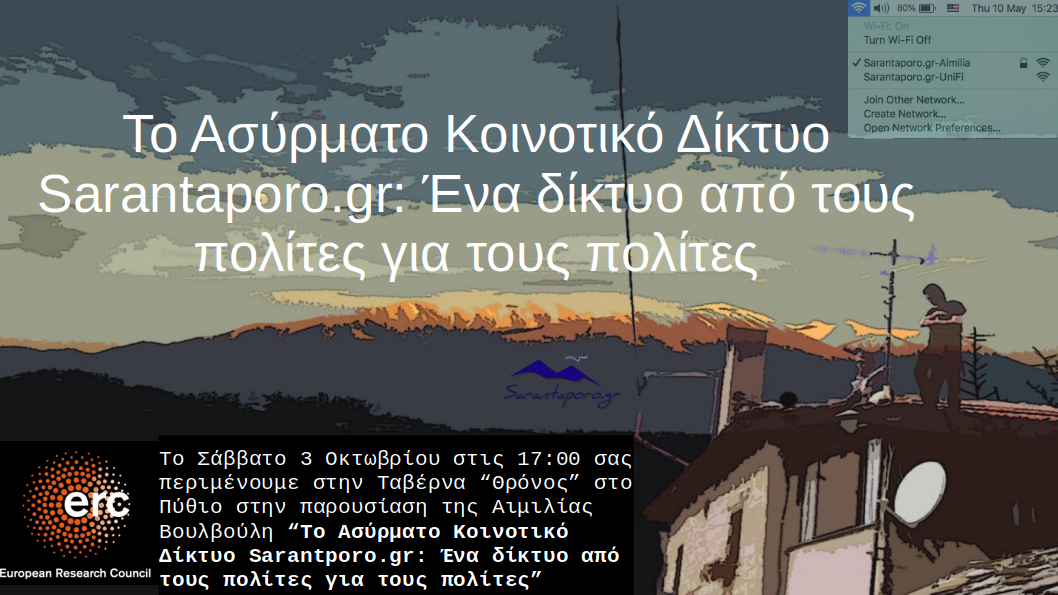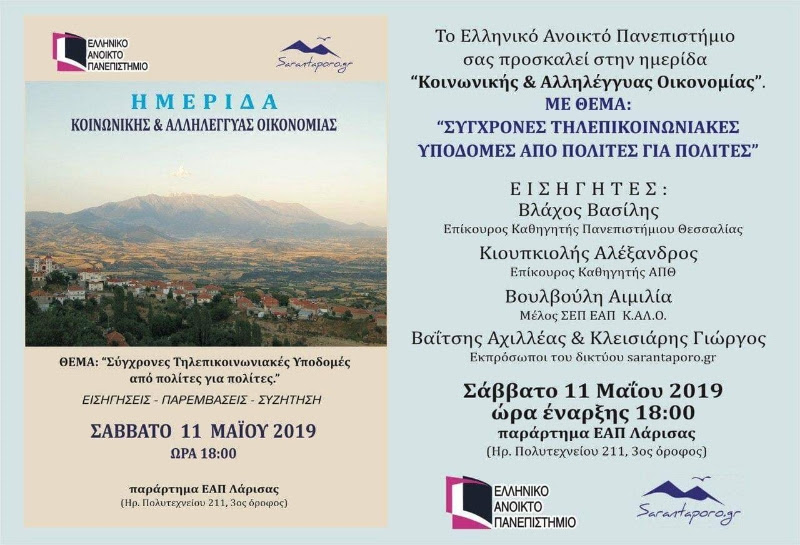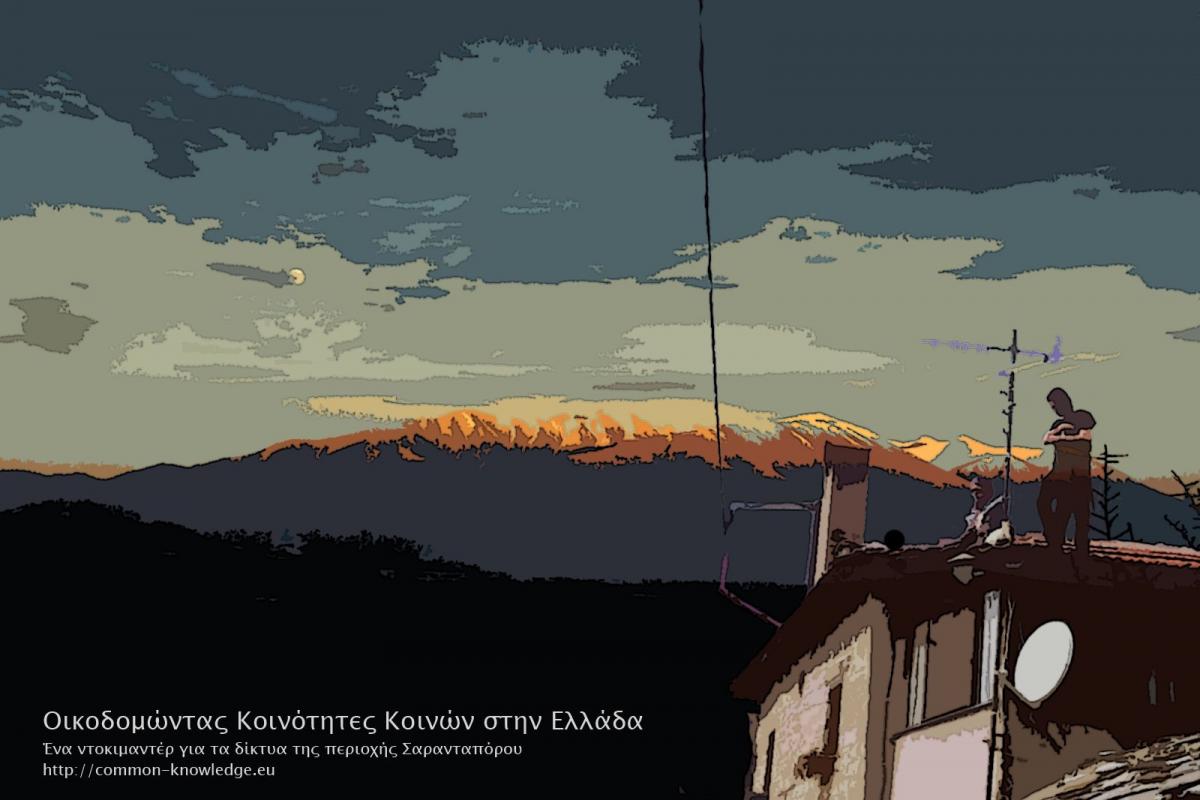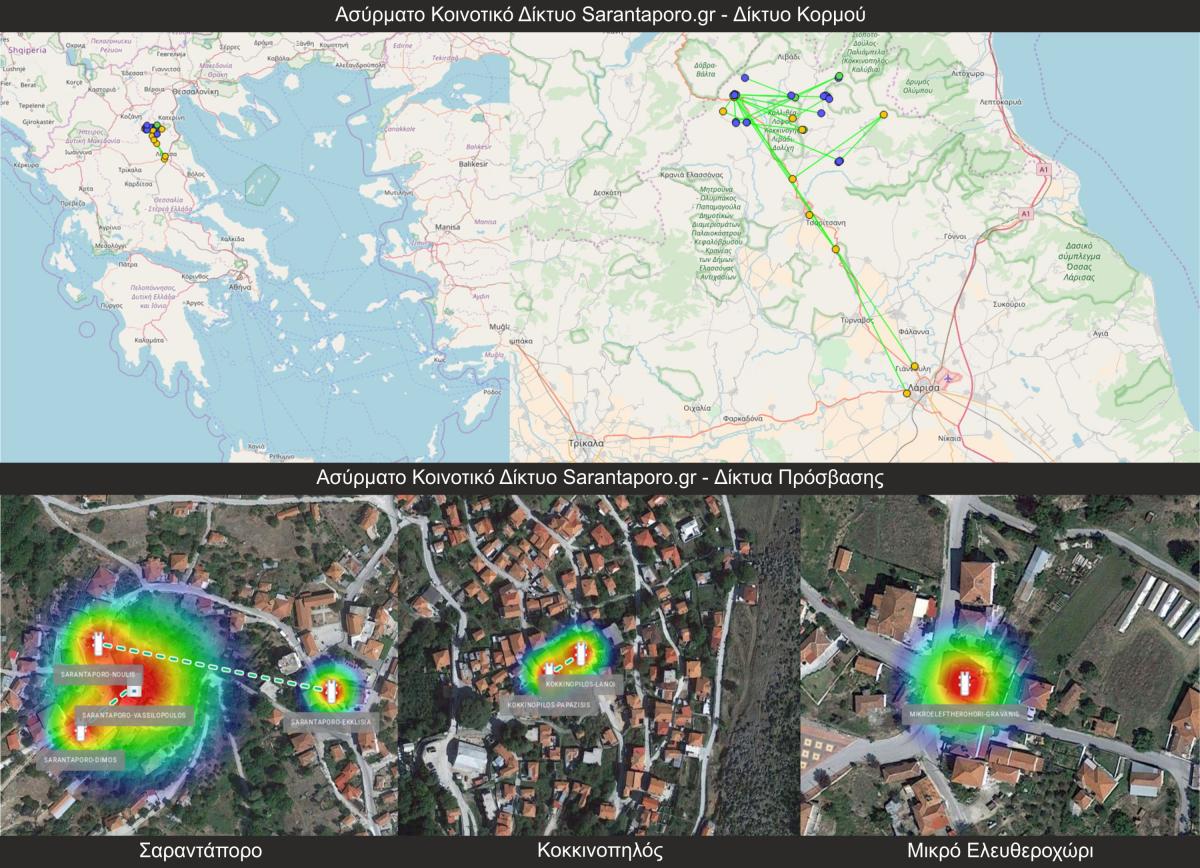Report 5. Case Studies in Greece, authored by Aimilia Voulvouli, reports on the case studies that Aimilia conducted in Greece in the context of the Heteropolitics research project, namely the wireless community network Sarantaporo.gr and the Cooperative Ecosystem of Karditsa.
Sarantaporo.gr: A network by the citizens, for the citizens
On Saturday 3 October at 17.00, Aimilia Voulvouli will be presenting her work on Sarantaporo.gr at the tavern “Thronos” in Pithio, which is one of the villages that participate in the network. The presentation, which will be in greek, will be live-streamed on our youtube channel: https://www.youtube.com/channel/UCn48Vey0gZdmoKNXzHqcmBw

Το Σάββατο 3 Οκτωβρίου στις 5 το απόγευμα, θα πραγματοποιηθεί παρουσίαση της έρευνας της Αιμιλίας Βουλβούλη σχετικά με το Ασύρματο Κοινοτικό Δίκτυο Sarantaporo.gr στην ταβέρνα “Ο Θρόνος” στο Πύθιο Ελασσόνας, ένα από τα χωριά που συμμετέχουν στο δίκτυο. Θα παρέχεται η δυνατότητα livestreaming από το κανάλι των Ετεροπολιτικών στο youtube: https://www.youtube.com/
Heteropolitics at Social & Solidarity Conference in Larissa
Heteropolitics researchers Alexandros Kioupkiolis and Aimilia Voulvouli will be speaking at the Social & Solidarity Economy (SSE) Conference on the “Modern Telecom Infrastructures by Citizens for Citizens” organized by the Greek Open University and Sarantaporo.gr in Larissa on May 11, 2019. Here’s more information (in Greek) about the event: https://www.eap.gr/el/anakoinvseis-ekdilwseis/sunedria-ekdilwseis/ekdiilwseis-tou-eap-fwtografiko-arxeio/7490-imerida-k-al-o-tou-eap-sti-larisa-me-thema-sygxrones-tilepikoinoniakes-ypodomes-apo-polites-gia-polites
Interviews of activists from Sarantaporo.gr
From October 2017 to June 2018, in the framework of the Heteropolitics ERC COG (2017-2020) Research Project, we conducted ethnographic research in Elassona, where over the past nine years eleven villages have built, run and maintain a Wireless Community Network (WCN), sarantaporo.gr. The aim of our research is to contribute to the debate on Commons through feedback from the field where such ventures take place. More specifically, the aim of Heteropolitics is to highlight alternative, self-organised communities of Commons. In the case-study of sarantaporo.gr, we have focused on the community created around a Digital Commons and the perceptions emerging from participation in the WCN concerning the infrastructure, which is provided by all participants to all the inhabitants of the villages that belong on the network, either they are participants or not. The following narratives (in Greek) from interviews we held answer questions such as:
- How do the Commons emerge as everyday politics?
- How do the Commons differ from bureaucratic state policies?
- How do the subjectivities of participants emerge and get transformed in the contexts of such endeavours?
- How do participants understand their role in the endeavour and in the wider society they belong to?
You can read the full interviews (in Greek) here.
Connecting the unconnected in rural Greece: The case of Sarantaporo.gr
A report (co-authored by Heteropolitics researcher Aimilia Voulvouli) focusing on the case of Sarantaporo.gr in Greece has just been published on the GISWatch website.
NetCommons Video Report- Sarantaroporo.gr community network training
Video report from a Sarantaporo.gr training session on March 11, featuring Heteropolitics post-doctoral researcher Aimilia Voulvouli.
Filmed and edited by our partner Panayiotis Antoniadis of Nethood.
